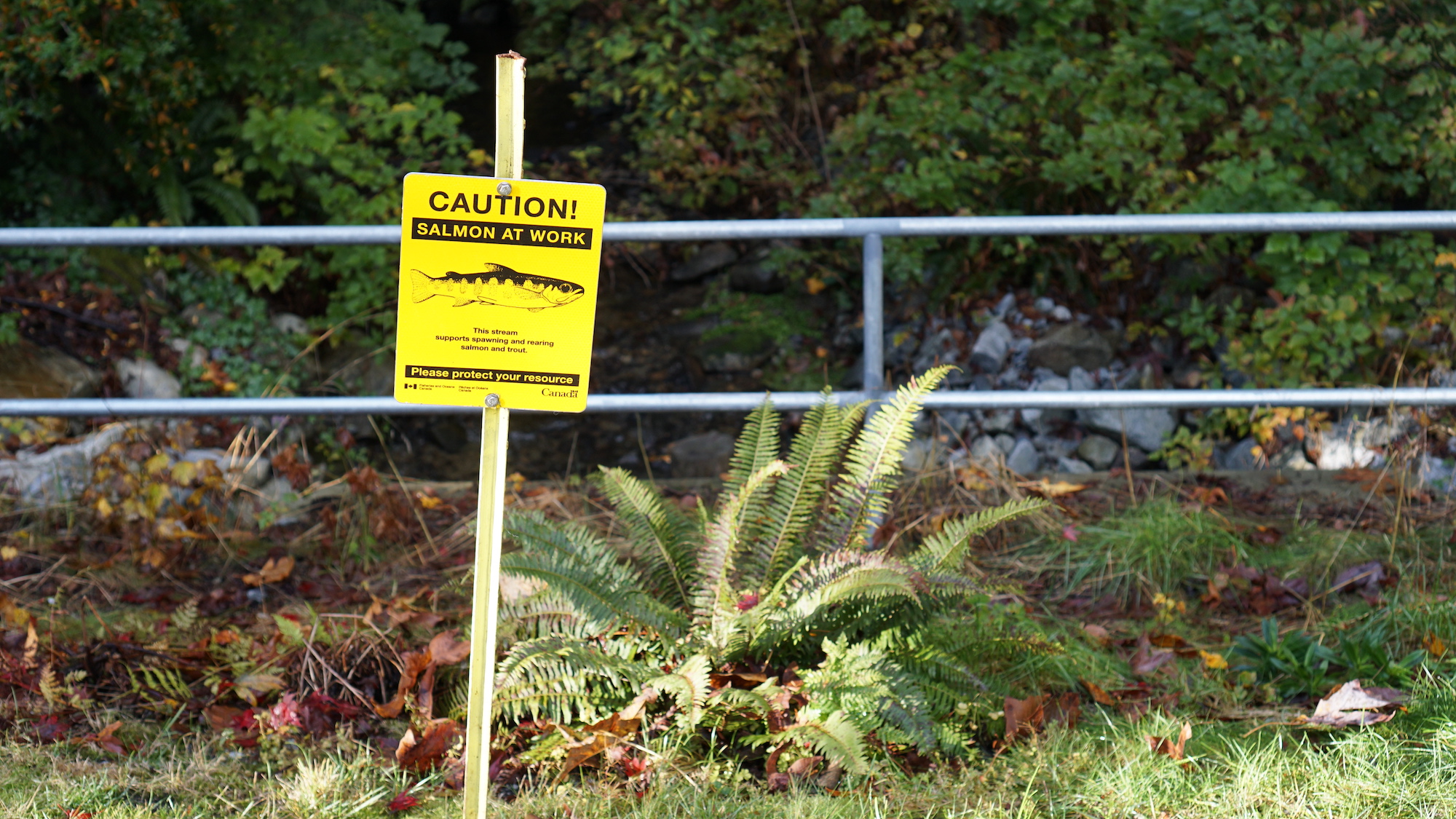Is road salt killing salmon?
November 3, 2022

November 3, 2022

UBC researchers led by Dr. Patricia Schulte, Dr. Chris Wood and Dr. Colin Brauner are joining forces with community groups to find out if road salt in streams could be harming Pacific salmon. They are investigating the seasonal impact of road salt in more than 20 streams around the Lower Mainland as well as growing baby salmon from eggs in high salt water in the lab.
In this Q&A, Drs. Schulte and Wood discuss how citizen scientists can contribute and how the public can help reduce any potential road salt impact.
CW: We know that Pacific salmon are in decline and we don’t know all the factors involved. Could too much salt in their streams be a cause? Even though adult salmon live in salt water, they grow up in fresh. When they’re ready for salt water, their whole body has to change to adapt. There’s evidence that quite moderate salt levels at young ages have caused mortality and stunted growth.
There are federal and provincial regulations that set maximum salt levels in streams, but these levels are not routinely monitored. No one has yet looked at patterns of salt exposure, for instance, whether a short, high spike of salt is harmful or not, or even whether certain types of salmon might be affected more: chum only spends about 30 to 45 days in freshwater, while coho spend more than a year, so it could be that one species gets hit hard and not the other.
PS: While things like climate change are known causes of salmon decline, salt could also be a factor. And we know road salt use in Canada is increasing at about 2.5 per cent per year. In Vancouver, the city has 3,000 tonnes of salt in its yards for winter maintenance on streets and sidewalks. As ice melts on the roads, it can run down into streams. Whatever we can do to stop salmon decline is great! And, this is something local that we can fix if we can figure out what’s going on.
PS: Thanks to an NSERC grant, we’ll be working with partners from Simon Fraser University, British Columbia Institute of Technology and Fisheries and Oceans Canada, and with 13 local streamkeeper organizations to monitor salt levels in streams. We’ll install instruments that monitor levels continuously, and volunteers will go to the streams and download the data onto their phones every two months to send to us. We have evidence that background levels of salt in B.C. streams are rising, as well as salt “pulses” in winter, so this data will help establish these patterns.
CW: Once we have this information, we can take freshly fertilized salmon eggs and raise them in salt “pulses” based on what we’re measuring in the nature. We’ll watch them hatch and see how they’re doing, answering questions like, is a short high spike not a problem if it comes down quickly enough? This is a five-year project, so we’ll also investigate how salt is affecting the organisms in the stream that the salmon eat, and what effect that might have on the fish.
PS: Community engagement is really important to this project. We’re looking for more streamkeeper groups and volunteers to become citizen scientists and help us gather data. In the meantime, until our results are in, there are ways everyone can reduce the potential impact of road salt:
We honour xwməθkwəy̓ əm (Musqueam) on whose ancestral, unceded territory UBC Vancouver is situated. UBC Science is committed to building meaningful relationships with Indigenous peoples so we can advance Reconciliation and ensure traditional ways of knowing enrich our teaching and research.
Learn more: Musqueam First Nation